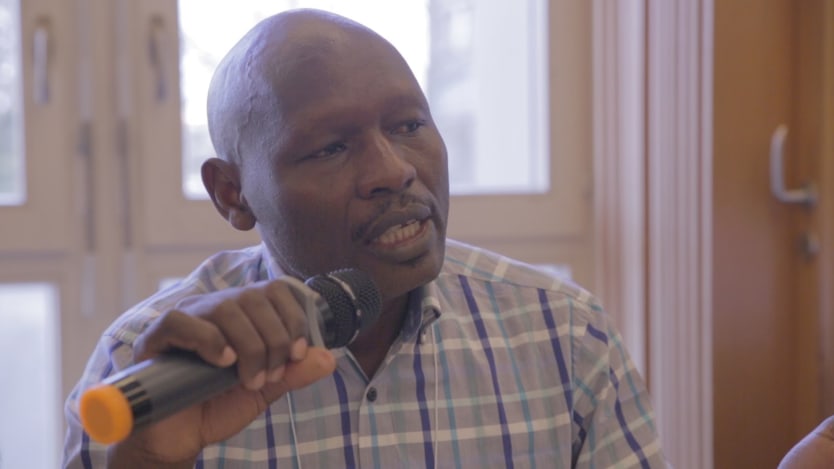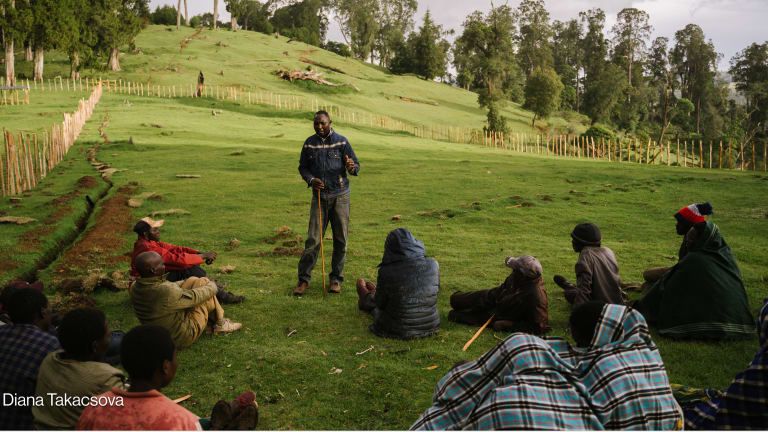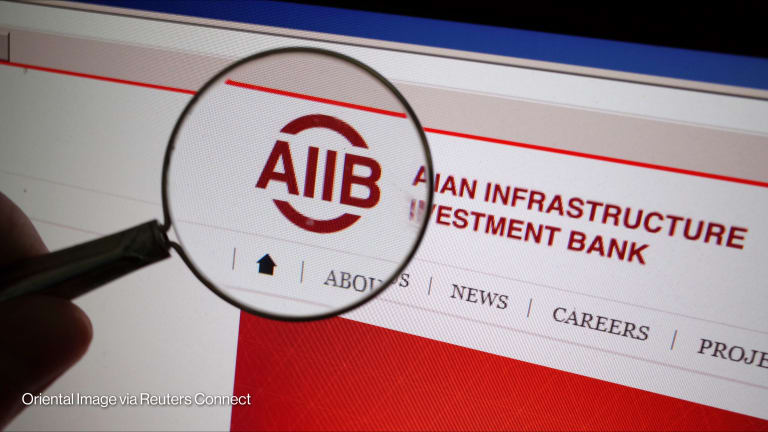
A recent report to the United Nations General Assembly has revealed a radical increase of violent attacks, human rights abuses, criminalization, and threats against indigenous people around the world. According to the report, written by Victoria Tauli-Corpuz, the U.N. special rapporteur on the rights of indigenous peoples, these attacks have drastically accelerated over the past five years, and are associated with large-scale private sector and development projects — extractive industries, agribusiness, infrastructures, hydroelectric dams, and logging — in territories where indigenous people typically reside.
According to the report: “The intensified competition over natural resources led by private companies, at times with Government complicity, has placed indigenous communities seeking to protect their traditional lands at the forefront as targets of persecution.”
While much of the report details dangers driven by private sector projects, global development projects can also unwittingly harm indigenous communities.
For example, in Kenya, the implementation of an EU-funded climate change mitigation and adaptation program — intended to protect the ground supply of water, known as water towers — resulted in attacks and mass evictions of the Sengwer indigenous people in Mount Elgon and the Cherangani Hills areas of Kenya.
Last December, more than 100 armed guards from the Kenya Forest Service entered the Embobut Forest — the traditional lands of the Sengwer people. According to a United Nations’ Human Rights report, in an effort to evict members of the Sengwer community from the forest, the guards slaughtered livestock, burned more than a dozen homes, and fired gunshots.
According to the same report, the next month on January 9, the forest service guards shot at a Sengwer leader, and while he escaped, his home was burnt down.
Upon receiving reports of human rights violations, the EU suspended the development project. However, Yator Kiptum — executive director of the community-based program the Sengwer Indigenous People’s Programme and a leader of the Sengwer community — believes that, had the situation been handled differently from the very beginning, both the violence and suspension of the EU project might have easily been avoided.
Nor are the Sengwer people the only indigenous community facing brutal treatment. The Human Rights Council report also raises concerns about the treatment of indigenous communities living in Brazil, Guatemala, Honduras, and Mexico, among others. While the challenges facing each community are distinct, the report points out certain common threads: Among them, a lack of respect and protection for indigenous land rights, or secure indigenous communities with land tenure, which “in turn undermines their ability to effectively defend their lands, territories and resources from the damage caused by large-scale projects.”
Devex spoke to Kiptum about what measures development practitioners, governments, and other stakeholders should adopt to ensure that future development projects respect the rights of indigenous peoples and local communities.
Excerpts from the conversation have been edited for length and clarity.
How can governments most effectively involve indigenous communities that are living in affected areas with conservation initiatives?
The government should respect the rights of indigenous peoples, protect these rights, and help them to live within their ancestral lands in the protected areas sustainably on conservation conditions, working closely with state agencies and other stakeholders for sustainable conservation of forests, water, and other natural resources. The government should stop forceful evictions of members of the indigenous people in these protected areas, but work together closely and make sure that whatever these communities are doing promotes conservation. The government of Kenya should respect and protect the rights of Sengwer indigenous people, as enshrined in the constitution of Kenya.
What role should international organizations such as the World Bank, or the European Commission, and other international actors play?
They should facilitate constructive dialogue processes where they bring together state agencies, governments, indigenous people, and other stakeholders in conservation so that they can listen to the concerns and fears of the indigenous peoples before engaging in the implementation of projects, because it’s important to have a win-win situation — where it’s a win for conservation and it’s also a win for the indigenous people living within this protected area.
Another thing that needs to be done is to amend the Forest Conservation and Management Act, 2016 to have it recognize and protect the rights of forest indigenous people to live in, govern, and own their ancestral lands sustainably, in the protected areas on conservation conditions.
Further, the World Bank, EU, UNDP, and so on, should sponsor representatives from the Kenyan Ministry of Environment and Forestry, National Land Commission, Kenya National Commission on Human Rights, Katiba Institute, and Sengwer indigenous peoples to visit and learn successes that countries such as Bolivia, Costa Rica, have achieved in conservation after securing the rights of indigenous people to live in, govern, manage, and own their ancestral lands, sustainably, in protected areas on conservation conditions.
The donor community should also make sure that a human rights-based approach and that free, prior, and informed consent — FPIC — form key components of conservation projects that they fund in indigenous peoples ancestral lands.
“It is important to have open, genuine, constructive dialogue, and this is possible if an independent international expert from an international institution that is accepted by all stakeholders is engaged to lead the process.”
— Yator Kiptum, executive director at the Sengwer Indigenous People’s ProgrammeWhat measures can be taken to ensure that these dialogues are successful?
It is important to have open, genuine, constructive dialogue, and this is possible if an independent international expert from an international institution that is accepted by all stakeholders is engaged to lead the process. The dialogue process should also try to identify the root causes of conflict and should lead to amending policies that are discriminatory to forest indigenous people. In Kenya, for example, the Forest Conservation and Management Act, 2016 does not recognize forest indigenous peoples who are living within conservation areas — and this has been the source of conflict and frequent forceful evictions.
Another thing, it is very important for international donors, or even governments, to make sure that as they plan for projects they get the FPIC of the people who are living in the project operational areas. This should be undertaken so that the indigenous people are made aware of the project that will be on their territories and be given the opportunity to say yes or no. FPIC must be implemented at all stages.
How can international NGOs provide the greatest support to indigenous people and local communities?
There’s also a role for international NGOs such as the International Union for Conservation of Nature, the Office of the High Commissioner of Human Rights, and the special rapporteur on the rights of indigenous people. These are some of the bodies that should really come in and help in facilitating processes to reduce conflict between indigenous peoples and governments. For example, in 2011-2012, IUCN together with Forest Peoples Programme successfully facilitated a Whakatane assessment process — a dialogue process — that brought together government of Kenya representatives, Ogiek of Chepkitale, and other stakeholders to a roundtable. They agreed to have a shared vision that will conserve the Chepkitale game reserve while protecting the rights of Ogiek indigenous peoples who are living within the protected area.
Some of these institutions have a rich knowledge of indigenous peoples, which is important because they understand us and the international human rights instruments and articles that can help the protection of indigenous people who are living within protected areas. We need the people who have all this information so that as they push the dialogue process. They can help us use these human rights instruments to address the rights of indigenous peoples.
In your opinion, is there anything that indigenous peoples and local communities need in order to be further empowered when advocating for themselves?
We need to train the community, the leaders, women, and youth in advocacy, lobbying, and negotiation skills, and with knowledge on international human rights instruments. If you understand that there are laws and instruments that protect your rights, you can strongly advocate for those rights.
Right now, we really need international players to push for the government to come together with us around the table. I am sure that once we meet in roundtables — between communities, state agencies, governments — we shall agree on measures for sustained conservation and protection of the rights of indigenous peoples living in the protected areas on conservation conditions.
Are there any other tools you might need?
Almost all of the indigenous forest communities in Kenya are in the same situation. If we come together as a network of forest indigenous peoples, this will help us consolidate our voices and to push for the amendments of the Forest Conservation and Management Act, 2016 so that it recognizes, respects, and protects our rights to live in, manage, govern, and own our ancestral lands in protected areas sustainably on conservation conditions working closely with state agencies and other stakeholders.
This article is part of a mini-series in partnership with the Rights and Resources Initiative. For more on land and resource rights for indigenous peoples and local communities take a look at RRI’s work here.








